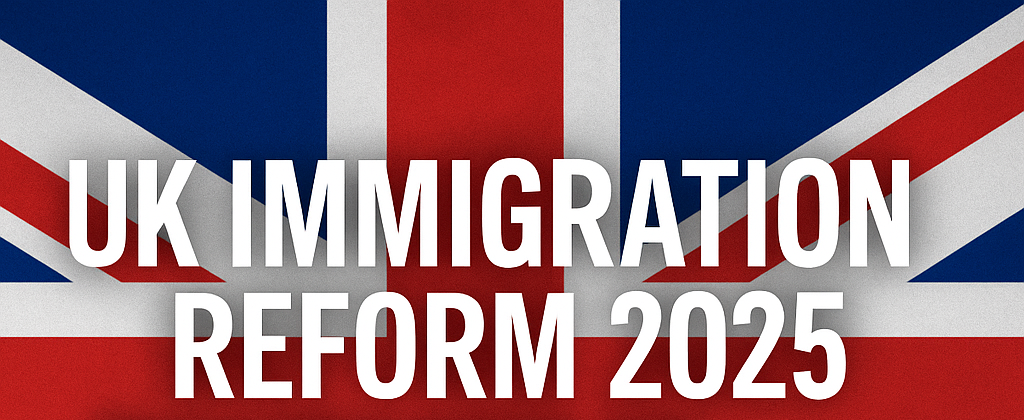
Understanding the 2025 Immigration Reforms: A Guide for International Students
The UK’s 2025 Immigration White Paper has introduced sweeping changes that will impact international students in significant ways—from admission policies and post-study work options to financial requirements and visa conditions. If you’re currently studying in the UK or planning to apply, it’s essential to understand how these changes may shape your academic and career journey.
This guide breaks down the key reforms and what they mean for you.
📌 Overview: What Is the 2025 Immigration White Paper?
Published in May 2025, the UK government’s white paper titled “Restoring Control over the Immigration System” outlines a new direction for immigration policy. The changes are intended to reduce net migration and focus on attracting high-skilled talent while tightening pathways that the government deems overused or misaligned with the UK’s labour needs.
International students are directly affected, with adjustments aimed at increasing compliance, reducing misuse of the study route, and tightening the link between education and high-skilled employment.
🎓 Key Changes for International Students
1. Graduate Route Reduced to 18 Months
Previously offering two years of post-study work rights (or three for PhD graduates), the Graduate Route will now last 18 months for new applicants starting from 2026.
➡️ What This Means: Students must plan career moves earlier and focus on transitioning to long-term work visas like the Skilled Worker Route within a shorter window.
2. 6% Levy on International Student Tuition
A controversial new 6% surcharge on international student tuition fees will be introduced.
➡️ What This Means: Universities may increase tuition costs, and students should budget for this added expense. The revenue is intended to fund skills training for the domestic workforce.
3. Tighter Sponsorship and Compliance Requirements
Universities and colleges sponsoring international students will face stricter scrutiny. Institutions with high dropout rates or visa violations could lose their sponsor licenses.
➡️ What This Means: Choose institutions with a strong compliance track record. Avoid questionable education agents or shortcut offers.
4. Increased English Language Requirements
English proficiency standards will rise, and adult dependents of students must now meet minimum English language requirements.
➡️ What This Means: Prepare thoroughly for IELTS or other approved tests. If bringing family, make sure they meet the new requirements too.
5. Reduced Dependants Allowance
Expect stricter controls on bringing dependents, especially for short-term or sub-degree programs.
➡️ What This Means: Review the updated list of eligible programs that allow family accompaniment before planning your move.
💼 What Should Current and Prospective Students Do?
✅ 1. Stay Informed Through Trusted Sources
Use official UK Home Office updates, university communications, and licensed immigration advisors to track changes.
✅ 2. Plan Career Paths Early
Begin preparing for the job market during your studies. Target employers licensed to sponsor Skilled Worker visas and apply before your Graduate Route expires.
✅ 3. Consider Alternative Destinations (If Needed)
If financial or policy changes make the UK less viable, you might also compare options in Canada, Australia, or Europe, where more generous post-study opportunities exist.
✅ 4. Engage With Your University’s Support Services
Take full advantage of career services, employability workshops, and visa guidance while on campus.
✈️ Final Thoughts: Should You Still Study in the UK?
The UK remains home to some of the world’s top-ranked universities, diverse campuses, and strong global alumni networks. While the new reforms present additional hurdles, well-prepared students can still thrive, especially those aiming for long-term, high-skilled employment in the UK.
The key is to approach your study abroad journey with more strategy and foresight than ever before.
RAQ Education London



 RAQ Education London
RAQ Education London